On July 25, 1990, eight days before the Iraqi invasion of Kuwait, a secret meeting took place between then-President Saddam Hussein and U.S. Ambassador to Iraq, April Glaspie. The long and short of the meeting was that America (supposedly) had neither opinion on Arab-Arab conflicts, nor opinion on border disagreement between Iraq and Kuwait.
In fact, as a representative of the Bush administration, Ambassador Glaspie told then-President Saddam that then-Secretary of State James Baker had directed her to re-emphasize an instruction, first given to Iraq in the 1960’s, that the Kuwait issue was not associated with America. Saddam was assured that Washington would not interfere.

On July 31st, two days before the Iraqi invasion, John Kelly, Assistant Secretary of State for Near Eastern affairs, testified to Congress that – “United States has no commitment to defend Kuwait and the U.S. has no intention of defending Kuwait if it is attacked by Iraq.” That was the green light from Washington to Baghdad to go ahead with the invasion, or so Saddam thought.
Similar to American annexation of Texas and Russian annexation of Crimea, Saddam Hussein moved his troops invaded and occupied Kuwait on 2 August 1990. Of course, President Saddam learned the hard way that the U.S. cannot be trusted. Like a hero, Bush unleashed Operation Desert Shield and Operation Desert Storm to liberate Kuwait and drove Iraq out.
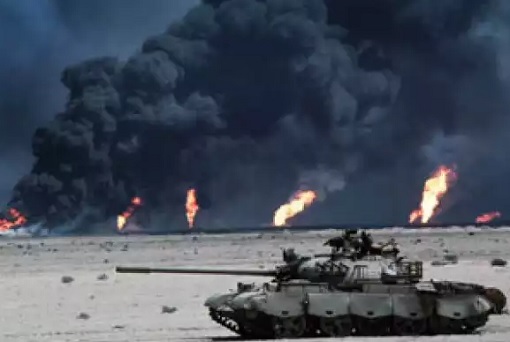
Now, Iraq is a U.S. puppet in the Middle East while Kuwait is forever grateful to the Americans. About 27 years later today, it seems Trump administration might repeat the same drama. If Russian military intelligence is to be believed, there could be more than just family squabble between Saudi Arabia and Qatar. Interestingly, both Iraq and Saudi share a similar ambition.
Saudi Arabia suddenly cut its diplomatic ties with Qatar last week. Sure, Saudi accuses Qatar of funding and harbouring terrorism. But it’s a public knowledge that Saudi is a bigger sponsor and supplier of global terrorism. The oil-rich Saudi was actually jealous of gas-rich Qatar. Qatar has also been belittling and undermining Saudi’s influence and power in the Middle East.
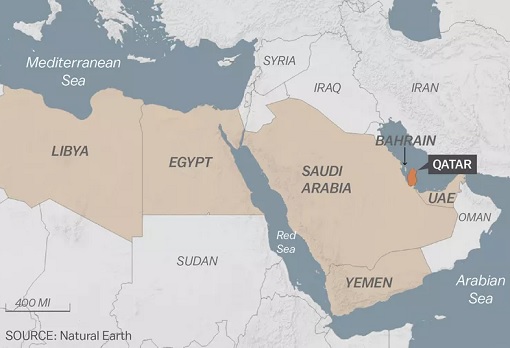
Qatar is seen as a thorn in the flesh for Saudi. Qatar’s ruling emir, Tamim bin Hamad Al Thani, has openly challenged Saudi’s King Salman over the real descendant of Sheikh Mohammed bin Abdulwahab, the founder of Wahhabism. More importantly, Saudi, like Iraqi under Saddam regime, has a secret ambition – annexation of Qatar.
Actually, Saudi’s plan to invade Qatar isn’t a secret at all. The British kept the Saudis from extending their rule to its coastal protectorates – Qatar – as far back as in the 1920s. All this while, Saudi was willing to pretend Qatar was an independent nation, as long as the tiny kingdom behaves like a province of the greater Kingdom of Saudi Arabia.
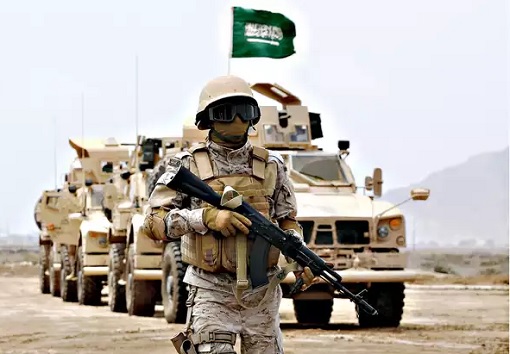
As Doha increasingly becomes more vocal against Riyadh and its other Gulf followers, not to mention its growing financial “independence”, Saudi saw such acts as a rebellion and an uprising. Therefore, Qatar needs to be neutralized, once and for all. And there’s only one solution – an invasion. King Salman would kill three birds with a stone if his kingdom could conquer Qatar.
First, an invasion would solve the problem of authority in the Middle East because as a Chinese saying goes – “one mountain cannot contain two tigers”. Second, a war would divert public’s attention from domestic issues due to low crude oil prices. Third, a financially troubled Saudi would suddenly be flushed with wealth derived from Qatar’s gas revenue upon annexation.

Russian military intelligence could have passed Saudi’s plan of an invasion to Qatar’s allies – Iran and Turkey. Kremlin couldn’t involve directly unless being invited, the same way Syrian President Bashar al-Assad invited Putin in the Syrian War. Iran, who has offered to send food to ease the shortage in Qatar, couldn’t participate openly because to do so would be disastrous to Doha.
Should Tehran sends troops to Doha before a Saudi invasion, it would legitimize Saudi’s suspicion all this while, that Qatar has betrayed the Sunni Muslims by working and conspiring with Shia / Shiite Muslims. Therefore, the only country that could help protect Qatar from a Saudi’s invasion is none other than Turkey, the second largest military force in NATO, after the U.S.
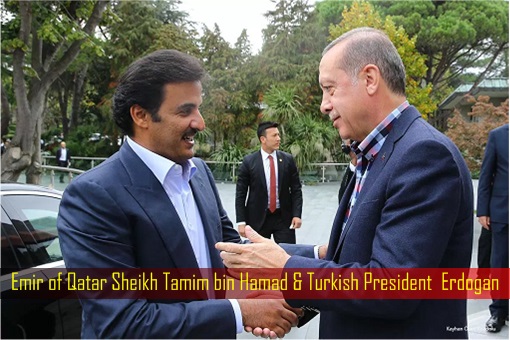
Now, if you think this is another silly conspiracy theory, think again. Just 2 days after Saudi Arabia (and its 7 dwarfs – Bahrain, United Arab Emirates, Egypt, Yemen, Libya, Mauritius and Maldives) severed diplomatic ties with Qatar; Turkish President Tayyip Erdogan has swiftly signed a law allowing its troops to be deployed to a Turkish military base in Qatar.
The lightning fast response by the Turkish Parliament to defend Qatar sends a strong signal to Saudi (and most likely Trump administration) that Turkey is treating urgently a prospect of an invasion on its friend. Turkey Parliament passed the law on Wednesday, only to have Erdogan signed it on Thursday and it was already published in the state gazette by Friday.
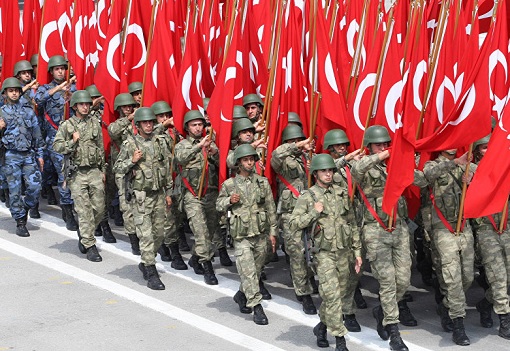
If the Saudi cutting ties with Qatar was a low-budget drama just to scare the hell out of Doha, there would not have been such an urgent need for troops deployment from Ankara to Doha, would there? Presently, about 200 Turkish military personnel are stationed temporarily at a former British base 15 miles from Doha. That number now can be boosted to a brigade-level task force of 5,000 troops.
In what appears to be a warning to Saudi and its allies, Turkish Hurriyet newspaper, Erdogan’s mouthpiece, has announced that Turkey will send warplanes and warships to Qatar after an initial deployment of troops to a Turkish base there. The plan to assist Qatar militarily, while not to provoke Saudi, is obviously to put Saudi in a tricky situation.
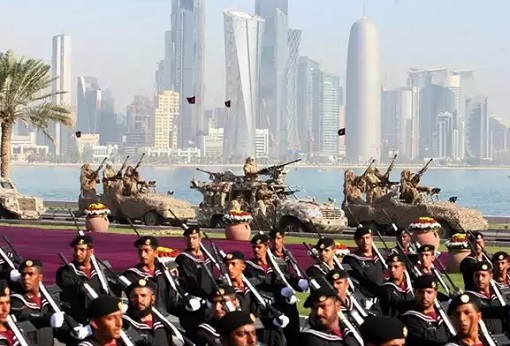
It’s not hard to understand why Turkey supports Qatar in the Riyadh-Doha crisis. Turkish President Tayyip Erdogan and Qatari Emir Tamim bin Hamad Al Thani share a common interest – both support Muslim Brotherhood. Erdogan does not consider the Brotherhood to be a terrorist organisation because “it is not an armed group, but is merely an ideological organization.”
Both Qatar and Turkey have economic ties with Iran. They believe in the concept of “balance of power” in the Middle East, where neither Saudi nor Iran should be allowed to dominate the rest of the nations in the region. Turkey and Qatar were also reluctant to participate in the last international embargo imposed by Washington on Iran in 2008.
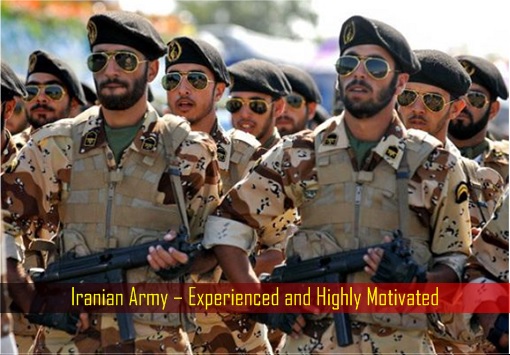
But it won’t be Turkey alone protecting Qatar, in an event of a full-blown military invasion led by Saudi Arabia. Iran is expected to mobilize its Navy and troops, crossing Persian Gulf to aid Doha under the pretext of protecting its investment where both Qatar and Iran share the world’s largest independent gas field beneath the waters of the Persian Gulf – the North Field.
Still, the burning question remains if President Trump would do a cunning manoeuvre the same way former President Bush did on Iraq. After gifting Trump with a military sales deal of about US$110 billion – effective immediately – plus another US$350 billion over the next 10 years, not to mention a gold medal, Saudi has secured America’s blessing for a confrontation with Qatar.
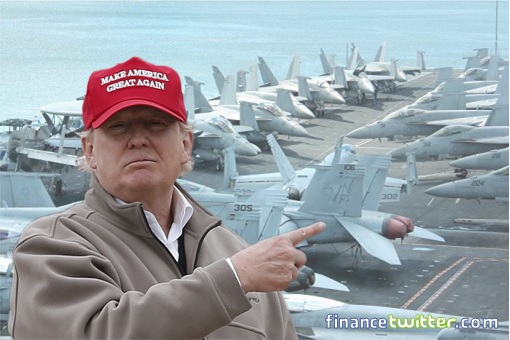
Trump’s tweets celebrating Saudi’s breaking diplomatic ties with Qatar could be taken as a green light, or at least an encouragement, for Riyadh to invade Doha. But will the unpredictable Donald Trump suddenly invades Saudi under the pretext of liberating Qatar, the same way George Bush played, tricked and betrayed Saddam Hussein close to 30 years ago?
Other Articles That May Interest You …
- Arab VS Arab – The Hidden Reasons Why Saudi & Its Gang “Unfriend” Qatar
- Trump The Great – No Kowtow To King Salman, Rewarded With $350 Billion Deals
- A Saudi Spring – Here’s Why King Salman Returns Perks To Public Sector
- Sponsor & Supplier – Majority Of ISIS Militants Are Citizens Of Saudi
- WikiLeaks: Hillary Clinton’s Email – Saudi And Qatar Are Funding Terrorist ISIS
- Exposing 9/11 Secrets – How Saudi Terrorism Began In 1979’s “The Siege Of Mecca”
- Saudi Has 100,000 Unused Air-Conditioned Tents, But Won’t Help Refugees
- The Answer To ISIS Invasion Threat – The Great Wall Of Saudi

|
|
June 13th, 2017 by financetwitter
|


|

|

|

|

|

|




























Comments
Add your comment now.
Leave a Reply